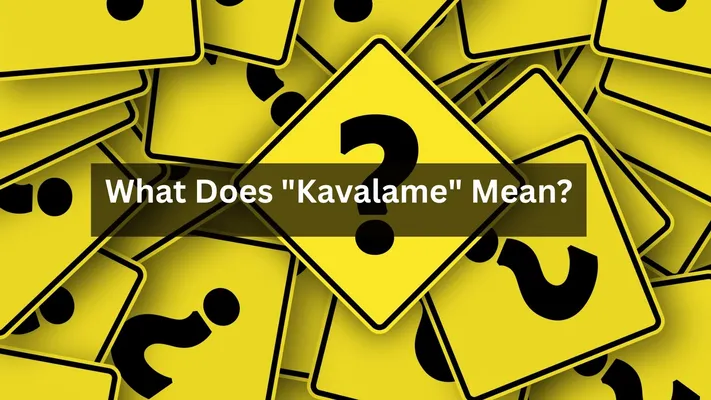The Many Meanings of “Kavalame”
The word “Kavalame” is not a common English term, and its meaning is not immediately apparent. A deep dive into its usage, however, reveals that it can refer to several different things depending on the context and the language in which it is used. This article explores the varied meanings and origins of “Kavalame” and similar-sounding words, from botanical names to personal names and linguistic nuances.
A Name of Botanical Significance
One of the most prominent uses of “Kavalam” (a common spelling variant) is in biology, particularly in South Asia. In the Tamil language, “Kavalam” is the name of a plant. Specifically, it is associated with the scientific names Sterculia guttata and Sterculia urens, species of trees belonging to the Sterculiaceae (Cacao) family.
For example, Sterculia urens is a tree found in India, and its gum—known as karaya gum or sterculia gum—has various uses in traditional medicine and as a food additive. This botanical connection shows the word’s roots in the natural world and local knowledge systems, particularly in regions where these plants are native.
The Nuances of “Kevalam” in South Indian Languages
A very similar-sounding word, “Kevalam,” has a fascinating and complex etymology in several South Indian languages. This is where the meaning becomes more nuanced and even contradictory.
- Sanskrit Origin: The word “Kevalam” (केवलम्) originates from Sanskrit and means “only” or “barely.” This root meaning is retained in languages like Kannada, Telugu, and Malayalam, where “Kevalam” or “Kevala” means “just” or “only.” For example, in Kannada, “kevala” (ಕೇವಲ) means “only” or “merely.”
- The Tamil Twist: In Tamil, the meaning has evolved. While it can still be used to mean “just” or “only” in a figurative sense, its more common meaning is “disgusting,” “bad,” or “contemptible.” This shift is believed to have occurred because the word’s original connotation of “barely” or “bare minimum” can imply something is of low value or not good enough. Over time, this negative implication became the word’s dominant meaning.
The variation between “Kavalam” and “Kevalam” might be a matter of transliteration or a regional spelling, but understanding the linguistic journey of “Kevalam” sheds light on why a simple-sounding word can carry such different weight and meaning from one place to another.
A Name of Unclear Origin
Finally, “Kavalame” can also appear as a surname or a place name, as is common with many words of Indian origin. Without specific historical context, the exact meaning of a name can be difficult to pinpoint. It could be a variation of a family name, a place name derived from the botanical “Kavalam,” or a unique name with its own local history.
The well-known Indian theatre director and poet Kavalam Narayana Panicker is a notable example of the name’s use. In this context, “Kavalam” is a place name in Kerala, India, from which his family name is derived. This shows the word can also simply be a geographical marker without a deeper semantic meaning in that specific application.
“Kavalame” in Pop Culture
The word “Kavalame” has recently gained pop-culture recognition from the movie Red One, where it appears as a command for Santa’s reindeer. In the movie, Santa (played by Dwayne Johnson) says “Kavalame” to his reindeer, which means “we ride” or “come here,” telling them to move forward quickly.
According to the film’s lore, the word comes from the Greek word “Kavala,” which means “ahead at full force.” However, there’s no evidence that this word exists in Greek. This highlights how new meanings and pop culture can create a new context for an old word.
